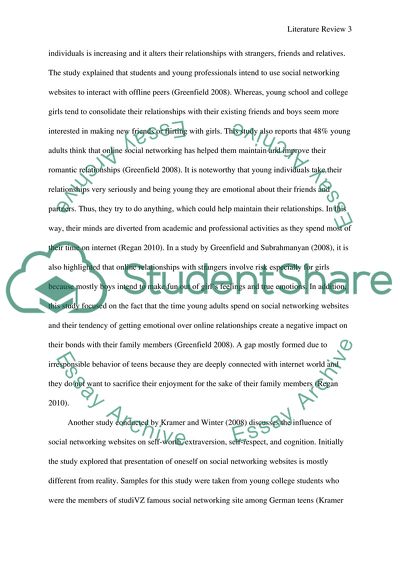Cite this document
(Literature review on the effects of social networking sites on young Example | Topics and Well Written Essays - 1500 words, n.d.)
Literature review on the effects of social networking sites on young Example | Topics and Well Written Essays - 1500 words. https://studentshare.org/sociology/1772053-literature-review-on-the-effects-of-social-networking-sites-on-young-adults-aged-between-18-25
Literature review on the effects of social networking sites on young Example | Topics and Well Written Essays - 1500 words. https://studentshare.org/sociology/1772053-literature-review-on-the-effects-of-social-networking-sites-on-young-adults-aged-between-18-25
(Literature Review on the Effects of Social Networking Sites on Young Example | Topics and Well Written Essays - 1500 Words)
Literature Review on the Effects of Social Networking Sites on Young Example | Topics and Well Written Essays - 1500 Words. https://studentshare.org/sociology/1772053-literature-review-on-the-effects-of-social-networking-sites-on-young-adults-aged-between-18-25.
Literature Review on the Effects of Social Networking Sites on Young Example | Topics and Well Written Essays - 1500 Words. https://studentshare.org/sociology/1772053-literature-review-on-the-effects-of-social-networking-sites-on-young-adults-aged-between-18-25.
“Literature Review on the Effects of Social Networking Sites on Young Example | Topics and Well Written Essays - 1500 Words”. https://studentshare.org/sociology/1772053-literature-review-on-the-effects-of-social-networking-sites-on-young-adults-aged-between-18-25.


